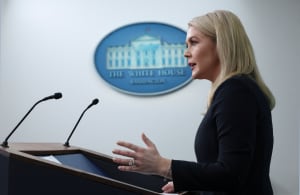An Israeli October: A contrast of anguish and assurance

Last year, Israelis celebrated their new year (Rosh Hashanah, “head of the year”) on September 15–17. Happy holiday (chag sameach) greetings rang out while Jewish families dipped delicious apples into fresh honey, a symbol for a sweet new year. Yet just 22 days later, on October 7, the bitter fruit of terror buried itself into Jewish minds and hearts when Hamas terrorists launched a shocking invasion into the Jewish ancestral homeland.
This year, a series of Jewish observances in October begins with Rosh Hashanah on October 3–4, based on Israel’s lunar calendar for the year 5,785. Three days later, on October 7, the nation’s anguish will be amplified as Israel marks the unspeakable on its one-year anniversary. As of today, 101 hostages are still imprisoned, upwards of 100,000 Israelis are refugees in their own land, Israeli casualties stand at 1,660—all while the world’s biblically illiterate label Israel as the aggressor, not the victim.
Israelis will exert themselves as much as they possibly can to greet the new year while seated at Rosh Hashanah tables. Chairs that had once been filled with family and friends laughing, joking, cooking, and eating will be unoccupied. Other chairs will remain empty, representing Israelis murdered by terrorists who ingest the poison of hatred as IDF soldiers defend their nation in an eight-front war. The dreaded day—October 7, 2024—then arrives, where Israelis relive their trauma. The Israeli version of PTSD, post-traumatic stress disorder, should have a new name: perpetual traumatic stress disorder. Because it never ends. That fact remains a harsh reality, a mental health issue shared by almost everyone.
On October 12, Yom Kippur, the Day of Atonement, follows. On this, the holiest day on the Jewish calendar, Israel shuts down amid prayer and fasting. Israelis cannot help but wonder if an act of terror will happen again on this holy day. After all, it was on October 6, 1973, that Egyptian and Syrian forces surprised Israel with an attack—also on Yom Kippur. Miraculously, the IDF repelled them.
Sukkot, the Feast of Tabernacles, is next in line, celebrated from October 17 to 23. For this fall harvest festival, Israelis build temporary shelters, some in grassy yards or perched on their apartment balconies, and gaily decorate them for meals and sleepovers. Sukkot is a remembrance of Israel’s 40-year desert journey, when the Israelites lived in temporary shelters after escaping Egypt.
Famous British Rabbi Lord Jonathan Sacks left a legacy of brilliant quotes. Here’s one I particularly like about Sukkot: “Sitting in the [shelter] under its canopy of leaves, I often think of my ancestors and their wanderings across Europe in search of safety, and I begin to understand how faith was their only home,” he wrote. “It was fragile, chillingly exposed to the storms of prejudice and hate. But it proved stronger than superpowers and outlived them all.”
God’s sovereign promises assure us that Israel “will outlive them all” in Jeremiah 31:35-36. “This is what the LORD says, He who appoints the sun to shine by day, Who decrees the moon and stars to shine by night, Who stirs up the sea so that its waves roar— the LORD Almighty is His name. Only if these decrees vanish from My sight, declares the LORD, will Israel ever cease being a nation before me.”
The eighth day of Sukkot is called Shemini Atzeret, with Simchat Torah (“Rejoicing of the Torah”) taking place immediately afterward on October 24. The elegantly encased Torah scrolls are gently carried throughout synagogues and reverently touched with the joy of receiving God’s law.
However, for Israelis looking toward Simchat Torah on October 24 this year, the invasion on October 7 last year will be a terrible reminder that the horror took place on Simchat Torah—traditionally a day devoted to reading the Torah. Last year’s Rejoicing of the Torah simply did not take place. In one sense, though, the many stories of heroism on and after October 7, now continuously shared almost a year later, follow closely the Jewish value of “tikkun olam”—repairing the world—with lifesaving rescues of those attacked, wounded, or in need of help emerging from citizens for citizens.
Throughout the millennia, those who harbor hatred toward Jews and Israel sometimes seem to favor destruction on important Jewish calendar days. The 1973 Yom Kippur war is an example. In making his multi-part documentary titled October 7th, 2023, filmmaker Dan Gordon researched and made a lesser-known discovery about October 7. He learned that “October 7 was a direct descendant of the massacres in the ancient Jewish communities of Jerusalem, Hebron, Tzfat, Tiberius and others in the 1920s and ’30s … long before there was even a state of Israel.”
Tisha B’Av, the ninth day of the Jewish month of Av, is viewed as the saddest day on the Jewish calendar. On it, Jews mourn tragedies in their history, especially the destruction of the First and Second Temples and the city of Jerusalem nearly 2,000 years ago. In the last 100 years, Tisha B’Av has included a day of mourning for Jewish communities massacred in the Middle East, North Africa, the pogroms of Eastern Europe, and the Holocaust. On Tisha B’Av 2024, August 12–13, the link between Tisha B’Av and October 7 shaped up as a major theme where thousands of synagogues across all Jewish denominations incorporated texts about October 7. Many predict that the October 7 onslaught will be canonized into Jewish liturgy.
Kindnesses from Christians toward any Jewish friends, synagogues, or Jewish organizations in your community are timely leading into and during the month of October. Send a letter, card, or email with a compassionate message. Attend an October 7 event that may be taking place near where you live. Include prayers for Jews, who are a population of only 15 million people globally, including around 245,000 Jewish Holocaust survivors in more than 90 countries.
Amid the anguish embedded in Jewish citizenry, God repeatedly emphasizes His assurances in Scripture. Presently, the dangers Israel itself is facing are complex and appear beyond any solution. That is, until we fasten our hopes for ourselves within God’s promises and for the worldwide Jewish community.
Most importantly, in Isaiah 46:4 the God of the universe assures humankind about Israel, the apple of His eye. “I have made you and I will carry you; I will sustain you and I will rescue you.” And that, God has done for thousands of years!
This article originally appeared here and is reposted with permission.

A speaker and consultant, Arlene Bridges Samuels authors the weekly feature column for The Christian Broadcasting Network/Israel on their Facebook and Blog since 2020. Previously she pioneered Christian outreach for the American Israel Public Affairs Committee (AIPAC). Retiring after nine years, she worked part-time for International Christian Embassy Jerusalem USA as Outreach Director for their project, American Christian Leaders for Israel (ACLI) Arlene is an author at The Blogs-Times of Israel, often traveling to Israel since 1990. By invitation she attends the Israel Government Press Office (GPO) Christian Media Summits as a recognized member of Christian media worldwide. Read more of her articles at CBN Israel blog. Arlene and her husband Paul Samuels have coauthored a book, Mental Health Meltdown, illuminating the voices of bipolar and other mental illnesses. On Amazon













